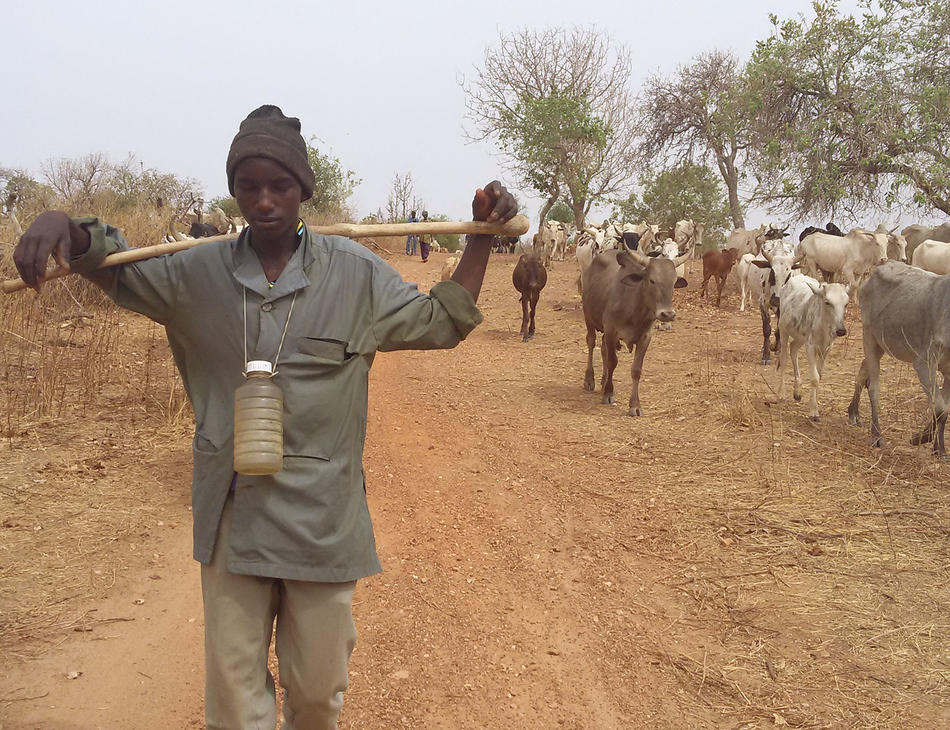By Muhammad S. Ahmad
The importance of the ruminant livestock industry as an essential component of general agriculture in Nigeria cannot be overstressed. Nigeria is endowed with 19.54 million cattle, 72.47 million goats, 41.33 million sheep, 278,840 camels and 974,499 donkeys (National Agricultural Sample Survey, 2011) making the nation the topmost livestock producer in West Africa. Despite these animal resources, the gap between actual and expected protein intake among Nigerians has continued to widen. The sub-sector has the capacity for earning revenue for governments, at all levels, provide employment, food, farm energy, manure, fuel and transport.
The sector is however being challenged by shrinking space, conflicts and adversities of climate change/desertification, changing land use pattern/urbanisation, cattle rustling that has degenerated into rural banditry and kidnappings.
- Unpaid SUBEB contracts: Nasarawa Assembly invites Access Bank MD
- PODCAST: Buhari’s First Cabinet Reshuffle: What It Portends
As a form of resilience and survival, the pastoralists who hold and produce the bulk of livestock and dairy products consumed locally, employ mobility as a production strategy. As such, livestock production in Nigeria is predominantly under the extensive system.
The extensive system that entails the movement of animals within and across agro-ecological zones has precipitated resource use competition resulting in high incidences of conflicts between host communities, crop farmers and pastoralists across the country. The conflicts plus natural phenomena like droughts, disease outbreaks e.g. Rinder Pest outbreak of the early ‘80s have shrunk the household herd size of the especially transhumance pastoralists. That depletion of the national herd has caused many livestock holders into many negative vices and even consuming the nation’s human population today.
Deliberate efforts were not adequately made to address these incidences by various governments over time and the incidences are now taking a massive toll on the nation resulting in loss of lives and properties. The present deadly conflicts reportedly occurred mostly between the Nigerian transhumance herders and/or the cross-border transhumance pastoralists on one hand and the local crop farmers on the other. The inter-tribal and religious dimensions of the conflicts, cattle rustling, rural banditry and kidnappings have compounded the problems. Also, the magnitude is aggravated by the use of deadly arms, thus the level of destruction as witnessed currently is very alarming. Hence, these conflicts portend not only socio-economic danger but are also a national food and security issue.
Quoting Dr. Junaidu Maina, a former Director of Federal Department of Livestock and Pest Control Services in the Federal Ministry of Agriculture and Rural Development, “By 2025, Nigeria will have an estimated population of about 300 million people, becoming the 4th most populous country in the world. So demand for the protein of animal origin will grow exponentially”. With the above scary feature, there is a need to address, secure and modernise our agriculture, especially livestock for food security and to take advantage of our huge natures’ endowment.
There have been the erroneous misconceptions across many regions of the country that the solution to the farmer/pastoralist conflicts is the establishment of ranches and the enactment of anti-grazing laws. A good understanding of the pastoralists system of production through their effective and efficient use of marginal lands to produce quality animal protein will be a panacea to the factors that hinder the growth of the livestock industry.
For the pastoralists that have been raising animals on free-range, they utilise marginal lands as well as convert crop residues that would have wasted away into good quality protein. The system helps in stabilising the prices of meat and milk in our markets because of its low investment requirement, in fact, experts at different fora have globally agreed that it is the cheapest form of ruminant production. For the pastoralists to change and embrace an intensive system of production – Modern Ranching – a lot of advocacy will be required, more so ranches are capital intensive, require large parcels of land and adequate security that is presently lacking in most parts of the country and the severe challenges of cattle rustling, banditry and kidnappings that have and are crippling the industry.
Despite the pastoralist’s resilience skills and experience at navigating uncertainties, they are now being tested to their limits. Inspiring pastoral principles that are and will alter their production practices are required to help them endure and adapt to current conditions, strategies and relations with host communities.
It is important for the various levels of governments and civil actors to focus on reducing conflicts and increase the resilience of Nigeria’s livestock farmers through peace building mechanisms, land use planning, livelihoods development, sustained multi-sectoral programming. This will be the only way to meet our national demand for meat that stands at over 1 million metric tons and ever-increasing with economic recovery.
Milk and dairy products imports now stand at about US$ 400m annually. Currently, about 50 per cent of animals consumed in this country come from ECOWAS and other countries. Lagos State alone slaughters over 6,000 cattle daily. Therefore, the need to modernise our livestock production system for food security and to take advantage of our huge internal market is obvious.
Patterns of mobility persist and diversify resulting in webs of new challenges. Herders should be encouraged to adapt their herd size, configuration and mobility to prevailing conditions and opportunities as they change. Government Extension Services and Research should articulate interfaces with farming communities and markets to sustain livelihoods amidst unpredictable conditions. Productive drought tolerant breeds should be researched and introduced. Pastoralists should be involved in debates about food production and environmental change as they remain a very important source of food and income for many people.
Just when I felt I have dried my pen, I received the news of the cabinet reshuffle that resulted in the appointment of a new minister of agriculture. I pray the appointment of the new minister will be a blessing to the pastoral community counting on the exposure and experience he has garnered in the ministry of environment where I believed he must have seen the level of environmental degradation that is compelling the pastoralists to be on the move.
Ahmad wrote from Wuse 2, Abuja [email protected]

 Join Daily Trust WhatsApp Community For Quick Access To News and Happenings Around You.
Join Daily Trust WhatsApp Community For Quick Access To News and Happenings Around You.


